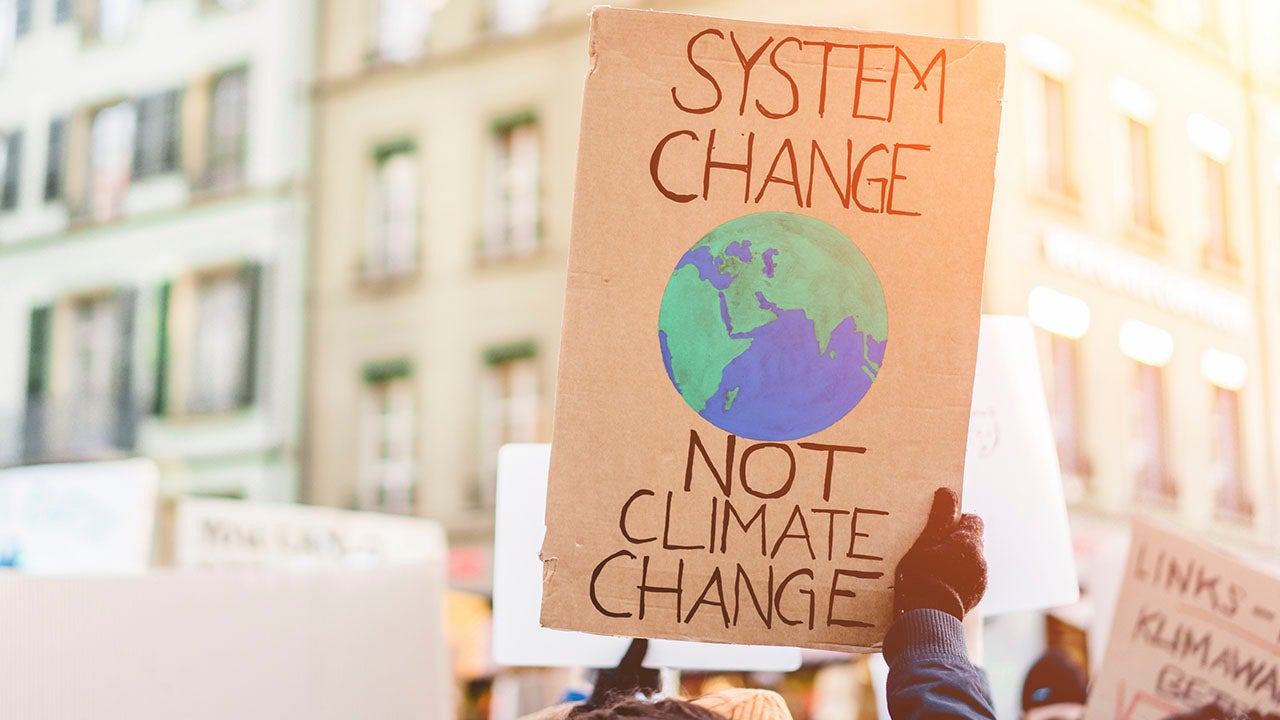Last Thursday, 350.org founder Bill McKibben, 14-year old climate activist Alexandria Villaseñor, and president and founder of the American Conservation Coalition Benji Backer participated in an inspiring discussion on how the climate movement continues to build momentum even as it has moved off the streets and online. Each speaker hails from a different corner of the movement yet offered similar perspectives on climate action and coalition building during the pandemic.
McKibben remarked that the current crisis is particularly uncomfortable because human instinct is to come together in a time of upheaval and hardship. The coronavirus pandemic has created perplexing circumstances by physically keeping us apart when we so desperately want to gather.
However, the panelists urged fellow leaders to find comfort in the solace of virtual engagement and activism. There is significant opportunity for the climate movement to unify and develop in new ways within this new reality. Here are some of the lessons we took away from their conversation:
First, our physical reality is real. McKibben has spent the last three decades working to convince legislators and decision-makers of the science of climate change with varied success. He says the realities of science and strength of nature are more incontrovertible today than ever. The volume at which politicians shout will not affect the course of coronavirus’ spread and the same remains true for climate change.
Second, delaying is the worst possible option. In this case, the parallels to climate change are almost sickeningly identical. The world might have looked very different today had modest action been taken 30 years ago to mitigate climate change, just as South Korea looks very different today than the United States because of their early response to COVID-19. While there is no trillion-dollar industry benefitting from COVID-19 in the way that the fossil fuel industry has and continues to benefit from carbon and methane emissions, as McKibben pointed out, the significance of crisis response time has never been clearer. Critical to this response is a strong working government to stabilize and revitalize the nation. Backer also highlighted the potential for state and corporate actors to take climate action when other avenues seem to have stalled.
Third, this crisis offers an opportunity to not only rebuild the economy but also to reimagine it. The urge to fall back into old patterns to regain a sense of normalcy when the immediacy of the COVID-19 crisis has passed will be strong, McKibben warned. We must fight the instinct for continuity and focus on exploring what a better economy could look like. The urge we feel for security and the comfort of what we know should be channeled into rebuilding an economy less concerned with rapid growth and instead oriented toward equity, stability, and resilience.
Fourth, it is time to challenge and hold our leaders accountable. McKibben warned that it is the “iron law of climate change” that those who have done the least to cause it are frequently the first and worst impacted. Thus, it is past time to increase pressure on the leaders who have rejected the Paris Agreement and the banks who have supported climate inaction, or worse, climate destruction. He reminded listeners that we have reached a moment in which individual action won’t be enough to win this fight, we need to make a structural shift. This should not inspire defeat but rather give us the conviction to continue the larger fight, working together to create and demand action.
Fifth, we must take digital action and innovate. Villaseñor and Backer both reflected on the additional time that they have been able to devote to online organizing and writing as the current crisis runs its course and reassured fellow leaders that the movement continues to grow in the right direction. In fact, with more time to reflect on all that we are doing, we can hit the reset button and innovate. While there is a shared sense of climate anxiety, the panelists shared that effective action has helped mitigate this stress. McKibben reflected that this work should be depressing and hard to deal with on some level and encouraged listeners to similarly use this to fuel their work. For starters, for Earth Day, 350.org is organizing in McKibben’s words a “digital commotion” from April 22-24.
Sixth, let’s come together and build a climate coalition. McKibben, Villaseñor, and Backer reflected on the gaps across generations, the geographic landscape of the US, and partisan lines that have divided the climate movement. They each offered prescriptions for uniting these diverse groups. Villaseñor encouraged intergenerational collaboration between youth activists and scientists so that the two can share in one another’s respective knowledge and stubborn voices. Backer reflected on the unique environmental consciences of rural and urban Americans and how different climate change looks across states with such varied physical and political landscapes. He urged fellow leaders to come together with open minds. And McKibben reminded listeners that while there are certainly no guarantees if we do everything we can, together, we might just have a chance. With activists like these three working diligently and inspiring us all, there is certainly hope for the future.
Watch the full discussion here:


